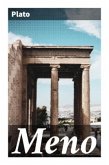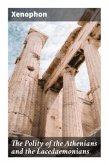In "Phaedrus," Plato intricately weaves a dialogue that explores the themes of love, rhetoric, and the nature of the soul. Set against the backdrop of classical Athens, the dialogue is characterized by its philosophical rigor and poetic elegance, reflecting Plato's unique ability to meld dialectical reasoning with lyrical expression. Through the conversation between Socrates and Phaedrus, the text delves into the complexities of rhetoric, distinguishing between mere persuasive speech and the pursuit of truth, while also examining the transformative power of love and its vital role in the quest for knowledge and virtue. This work not only illuminates the art of persuasion but also questions the ethical implications of rhetoric in societal discourse, making it a rich study in both literary and philosophical contexts. Plato, one of the most influential philosophers in Western thought, wrote "Phaedrus" around 370 BC, a time when Athens was undergoing significant cultural and intellectual evolution. His background as a student of Socrates profoundly shaped his philosophical outlook, infusing his dialogues with a desire to seek truth through reason and dialogue. Additionally, Plato's experiences with political leadership and the oratory of his contemporaries informed his critical examination of rhetoric, thus creating a foundation for his exploration of love as a driving force in both personal and intellectual relationships. "Phaedrus" is a must-read for anyone interested in philosophy, rhetoric, or the timeless complexities of human relationships. Plato's masterful use of dialogue not only stimulates intellectual curiosity but also provides profound insights into the interplay of love and reason. This work is essential for understanding the philosophical foundations that underpin much of Western thought, making it a valuable addition to the library of scholars and enthusiasts alike.
Bitte wählen Sie Ihr Anliegen aus.
Rechnungen
Retourenschein anfordern
Bestellstatus
Storno








